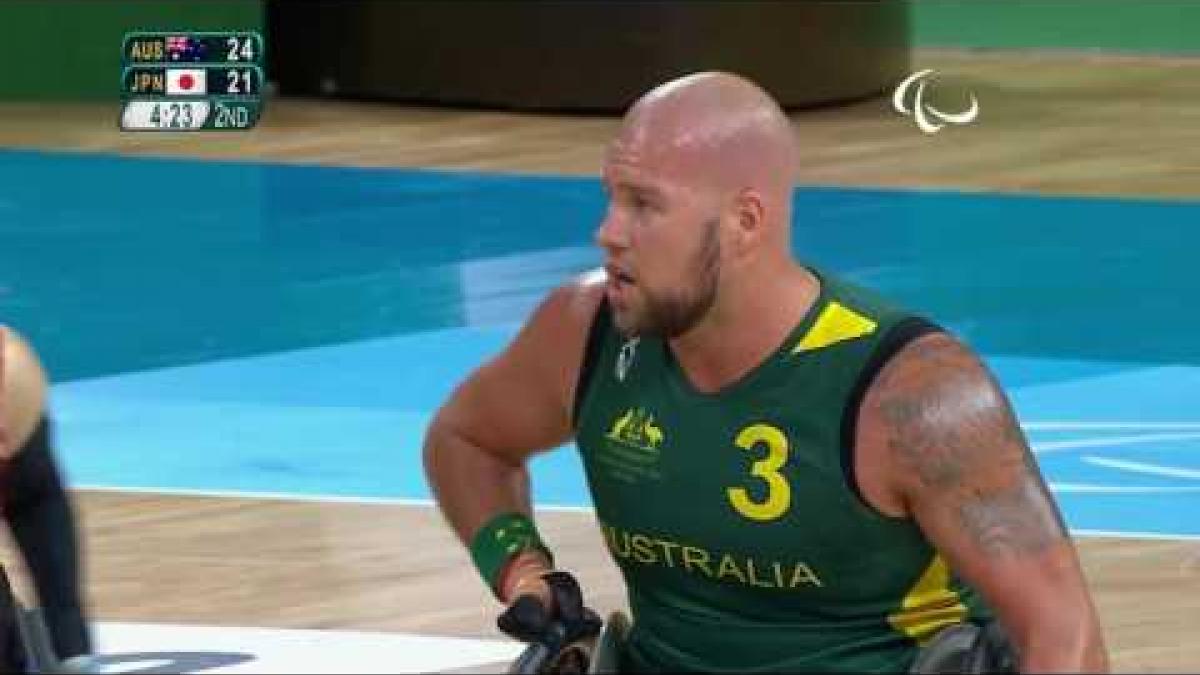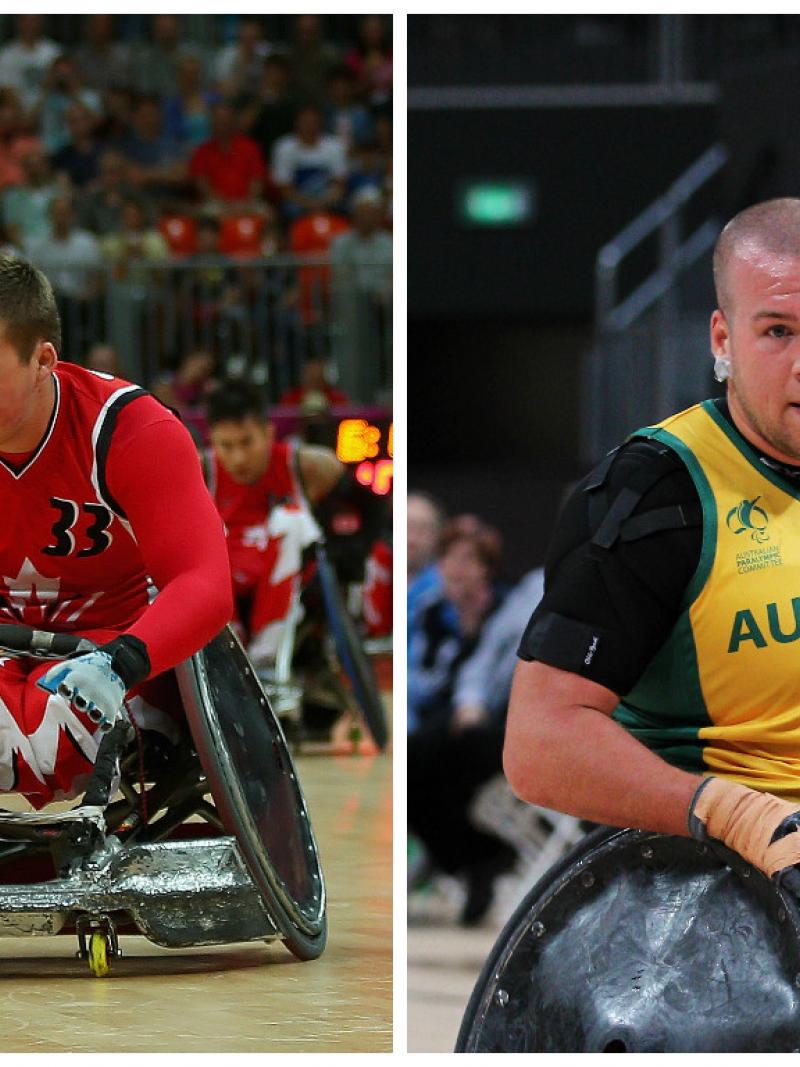Warn, Puderbaugh reflect on Paralympic debuts
The youngest members on the Australian and US wheelchair rugby teams had a Games to remember at Rio 2016. 24 Oct 2016
The USA’s Kory Puderbaug and Australian Jayden Warn at the Rio 2016 Paralympic Games.
“Rio did a fantastic job of hosting, the volunteers were outstanding, and the Brazilian people were such great fans.”
As the youngest wheelchair rugby players on their respective teams, Australian Jayden Warn and the USA’s Kory Puderbaugh had a Paralympic Games debut that would be hard to forget.
The two sides clashed in the gold medal match, with Australia taking an exciting 59-58 in double overtime at Rio 2016, and the thrill was still fresh in their minds nearly a month since then.
“It was so stressful sitting on the sidelines knowing we’d put everything into the last four years and it all came down to one game,” said Warn, 22.
“I’ve been dreaming about it for the last three-and-a-half years after listening to the guys talk about how it felt in London, so personally that was a drive for me because I wanted to know what it felt like.
“It was a bit of an honour to hear some of the veterans of the sport say it was the best game of wheelchair rugby they’ve ever seen.”
Warn scored one goal in a game where every point mattered.
He said his teammates often joke that he came onto the scene at the right time just after the success at London 2012.
“I feel so fortunate that I have come on at this time and being the youngest, but being able to play minutes at every tournament has been great.
“I was on the court when the final buzzer went off at [the 2014 World Championships in Odense, Denmark] and I didn’t think anything could top that until the Paralympics came around.”
Despite being the youngest on the team, Warn said he did not feel nervous.
“I’m still learning how to turn those nerves into a nervous adrenaline, but all the older guys have taken me under their wing being the youngest on the team and helped me progress in the sport,” he added.
He admitted it took a while to fully sink in what he and the team had achieved, until he returned home to Australia.
“There was the welcome home parade and heaps of people calling me and my family and friends congratulating me and wanting to see me and the medal,” Warn said.
“We broke the record for that arena and it was overwhelming having the crowd there, especially in the final.
“The Brazilian support was awesome, I don’t know if it was the green and gold that helped us out, but it was amazing.”
On the other side of the ledger, the loss still hurt for team USA and 20-year-old Puderbaugh who threw everything at Australia and came up a point short.
“In some ways, it’s still a fresh wound even a month after, considering for the past four years we have been aiming towards this goal, working and building towards it. Everything happened so fast,” Puderbaugh said.
“One can go back and forth, beating himself up, asking why he did this instead of that, and wishing there was another opportunity. However, time moves on and waits for no one so it won’t be long before myself and my teammates get back up and land another hit.
“We’re waiting for the next chance.”
Puderbaugh first started training with the US squad in July of last year and became an official member of the team on April of this year. What made the experience also worthwhile was the electric atmosphere during the matches.
“Rio did a fantastic job of hosting, the volunteers were outstanding, and the Brazilian people were such great fans,” Puderbaugh said.
“They really pour their lungs into making their presence as a fan known. I can remember being less than a foot away from one of our coaches and we were yelling at one another, attempting to communicate our game plan. It was extraordinary.”
Puderbaugh scored 10 goals during the finals. He said the nerves were not a factor for him but there is room for improvement.
“There will never be a time when I say, ‘I made it, I am a finished product,’” Puderbaugh said.
“I think going back to the fundamentals and what works [are] crucial. Always pushing each other to be a better athlete and a better teammate is something we’re constantly pushing the envelope of – creating team chemistry and more output from an individual basis.”
While his passion for wheelchair rugby continues to grow each day, Puderbaugh admitted it is the people around the Team USA camp that make the experience so enjoyable.
“Having the opportunity and humbling honour of being around everyone in the programme has brought happiness to my heart and tears of joy to my eyes,” he said.
“We call each other family and I would not be as fortunate as I am today without each and every single person within.”

 Facebook
Facebook
 Instagram
Instagram
 Twitter
Twitter
 Youtube
Youtube
 TikTok
TikTok
 Newsletter Subscribe
Newsletter Subscribe



